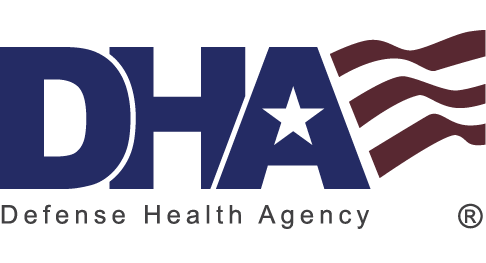Dec. 23, 2024 | By TRICARE Communications
FALLS CHURCH, VIRGINIA – With the end of the year approaching, it’s a good time to consider your family’s healthcare needs for the coming year. As you think about things like scheduling preventive care visits and knowing your 2025 TRICARE costs, you should also note some changes coming to TRICARE in 2025. There will be a new health plan and dental contracts—as well as other expanded TRICARE benefits—that may provide you and your family with services to support your overall health and well-being.
“TRICARE remains committed to offering service members, retirees, and their family members with the best possible benefit wherever they are,” said Dr. David Krulak, Director of TRICARE Health Plan, at the Defense Health Agency. “We believe these changes will help improve access to high-quality care for TRICARE beneficiaries around the world.”
Keep reading to learn about four of these changes and whether they’ll affect your family.
New regional contracts in the U.S.
Do you live in the U.S.? If so, the biggest change coming to TRICARE in 2025 is the start of health care delivery under TRICARE’s new regional contracts. These changes will affect you unless you have the US Family Health Plan or TRICARE For Life.
While there will still be two TRICARE regions, six states currently in the East Region (Arkansas, Illinois, Louisiana, Oklahoma, Texas, Wisconsin) are moving to the West Region. There are also some ZIP codes in four of these states that will be exceptions to the region changes.
Remember: If you live in the West Region, or a state moving to the West Region, you need to provide your recurring payment information to TriWest Healthcare Alliance by Jan. 1, if you pay for your TRICARE coverage via bank electronic funds transfer, debit card, or credit card. (However, if you pay by military pay system allotment, you don’t need to do anything. Your payment information will transfer to TriWest automatically.) You can also create an account on TriWest’s website and check which providers are in TriWest’s network.
The new contracts will bring several improvements, including:
- More efficient referral transfers between the two regions
- Greater access to highly specialized medical and surgical care
- Improved choice, including virtual value network tools that will help you quickly identify providers with the best outcomes
- Better access to telehealth appointments
Do you have more questions about how the new TRICARE contracts may affect you in 2025? Check out these articles on the TRICARE Newsroom:
- Live in the West Region? Update Your TRICARE Payment Information With TriWest
- Reminder: TRICARE Regions Are Changing Jan. 1, 2025
- Know How TRICARE Regions Are Changing in 2025
- Learn How Referrals and Specialty Care Will Work as New TRICARE Contracts Start in 2025
- Q&A: What To Know as New TRICARE Contracts Begin in 2025
Expanded Childbirth and Breastfeeding Support Demonstration
Are you expecting a baby in 2025? You should know there are also some changes coming to the TRICARE Childbirth and Breastfeeding Support Demonstration on Jan. 1. This demonstration provides childbirth and breastfeeding support services to those who have TRICARE Prime, TRICARE Prime Remote, or TRICARE Select, as described in the TRICARE Maternity Care Brochure. In 2025, the CBSD will expand overseas. There are also some new certification and participation requirements for labor doulas in the U.S.
In the U.S., the changes include:
- Participation agreements: Certified labor doulas in the U.S. must sign a participation agreement to take part in the CBSD. Labor doulas with a participation agreement can’t ask you to pay for covered services once you’ve met your deductible. They also can’t ask you to file your own claims.
- Certification requirements: Among other qualifications, labor doulas must have a current certification from an approved certifying body. The list of approved certifying bodies now includes the National Black Doulas Association. (Note: Labor doulas working with a state Medicaid program may not be required to meet the certification requirement. But they must still sign a participation agreement.)
- Visit flexibility: The CBSD now includes a maximum of six hours of visits from your labor doula (plus unlimited hours of labor support during the birthing event). These can happen before or after you give birth. The six hours can be split into 15-minute increments any way you’d like.
The CBSD will also be available overseas beginning Jan. 1. Overseas, the CBSD includes the same benefits as it does in the U.S. Keep in mind, there may be different, country-specific rules about provider qualifications and services.
Overseas, you must register for the CBSD before you get any services. To register, contact International SOS via phone or email. You should do this as early as possible in your pregnancy. After you register, International SOS will let you know if they can find a TRICARE-authorized provider within 14 days.
The CBSD ends in the U.S. and overseas Dec. 31, 2026. At that time, TRICARE will decide if this coverage will become permanent. To learn more, check out “2025 Changes to the TRICARE Childbirth and Breastfeeding Support Demonstration” on the TRICARE Newsroom.
New dental contract
In March 2025, a new TRICARE Dental Program contract will begin. While United Concordia will remain the TRICARE dental contractor, the premium rates will change. In the coming weeks, keep an eye out for another TRICARE Newsroom article that explains more about the new dental contract. It’ll include the updated rates that will take effect in March 2025.
Updates to drive time waiver policy
Do you have a TRICARE Prime plan? In 2025, if you move more than a 30-minute drive (but less than 100 miles) away from your military hospital or clinic, you can seamlessly stay empaneled with your current primary care manager.
Unlike in the past, you won’t need to take any action to waive your drive time access to care standard. You’ll get a letter telling you that you live farther than a 30-minute drive from your PCM, which is outside the access to care standard. If you don’t respond, you’ll remain with your current PCM. However, you can still choose to change to a new PCM, if you prefer.
The new process is simple:
- After your move, you’ll get a letter from TRICARE. It’ll tell you that you live farther than a 30-minute (but less than 100 miles) drive from your PCM.
- If you don’t respond, you’ll stay with your current PCM.
- If you want to change your PCM, follow the instructions in the letter.
More information about this updated policy will be available in 2025.
While a few things will change next year, TRICARE’s commitment to the highest quality of care remains the same. Unlock your health by learning more about how to get care with TRICARE in 2025.







